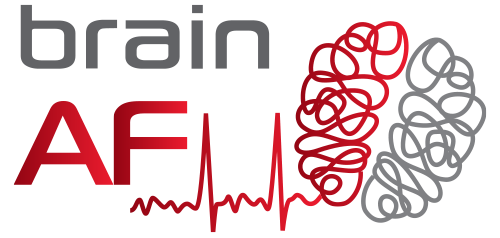Understanding Atrial Fibrillation
Atrial fibrillation affects about 700,000 people in Canada, 25% of whom are under 65 years old (approximately 175,000 people). This cardiovascular disease affects the two upper chambers of the heart called the atria, which ensure an efficient blood flow to the ventricles and the rest of the body through regular electrical signals. Atrial fibrillation occurs when these electrical signals become rapid, irregular, and chaotic, reducing the heart’s efficiency at pumping blood.

Risk factors
Atrial fibrillation can be caused by various factors, such as age, high blood pressure, hyperthyroidism (overactive thyroid gland), diabetes, sleep apnea, alcohol consumption, family history, and genetics. In many cases, the cause of atrial fibrillation remains unknown.
Symptoms of atrial fibrillation
Patients experience atrial fibrillation in different ways. Signs and symptoms include
› Rapid heartbeat/palpitations
› Shortness of breath
› Fatigue
› Dizziness
› Chest pain
In about 30% of cases, atrial fibrillation is asymptomatic.


Effect of atrial fibrillation
When left untreated, atrial fibrillation can cause small blood clots in the atria. These blood clots can travel to the brain and cause strokes.

Testimony
Mellanie True Hills is a speaker and CEO of the group StopAfib.org, which she created as a patient-to-patient resource to share what she and other atrial fibrillation patients have learned.
She shared with us the below testimony about the BRAIN-AF trial:
“Patients tell me they are devastated by being diagnosed with atrial fibrillation, which hijacks their lives so they can no longer do the things they love. On top of that, they now have to be afraid of strokes and bleeds.
Now, they’re hearing that AF may lead to dementia and cognitive issues, too, and no one knows why or what to do about it. They just can’t handle this. Many just want to give up and don’t even want to go on knowing what lies ahead.
But, BRAIN-AF may provide hope for AF patients and their loved ones by increasing scientific knowledge on AF, which could lead the better quality of life for them.”
What is a stroke?
A stroke (cerebrovascular accident) is defined by a sudden loss of one or several brain functions due to an interruption in blood flow. This interruption may be caused by a blood clot or a ruptured blood vessel. Strokes can also be silent. This occurs when tiny blood clots lodge in the brain without any apparent symptoms.
What is cognitive decline?
Cognitive decline, or brain function decline, is an impairment of one or several mental abilities, such as memory, comprehension, reasoning, and attention. Several studies have confirmed a link between silent strokes, cognitive decline, and atrial fibrillation. According to researchers at the Montreal Heart Institute, silent strokes can cause memory impairment and, later on, dementia.
